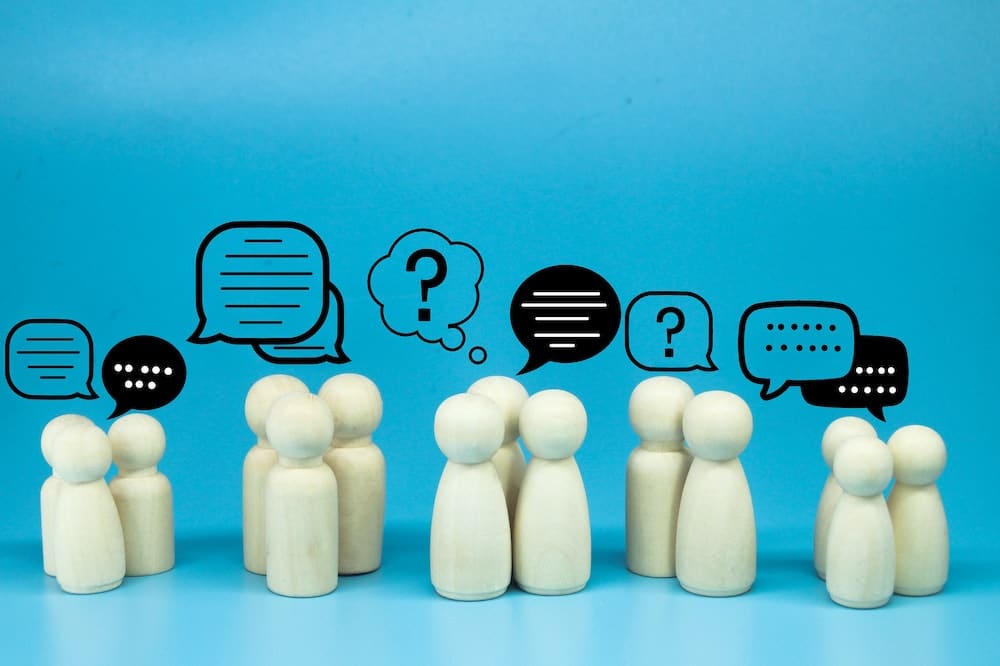What Impact Does Intergenerational Interaction Have on Cognitive Stimulation in the Elderly?

Is there a connection between the interaction of different generations and the cognitive health of seniors? A growing body of evidence suggests, indeed, there is. A significant number of studies offer a compelling argument for the benefits of intergenerational activities, enhancing the cognitive abilities and overall health of older adults.
The Importance of Intergenerational Activities on Cognitive Health
Intergenerational activities are designed to bring together different generations for mutual benefit. Younger members of society interact with seniors in a variety of environments, including schools, retirement homes, and community centers. Many programs have been specifically developed to facilitate such interactions, which are increasingly being recognized for their potential health benefits.
Cela peut vous intéresser : Stylish and eco-friendly scrub caps for healthcare professionals
In particular, there is a growing body of research that focuses on the impact of these activities on cognitive stimulation in seniors. One evidence-based study, published in the Journal of Applied Gerontology, considered the influence of an intergenerational program on cognitive ability in seniors. The results of the study demonstrated a significant improvement in cognitive function, specifically in memory and executive functions, among the older participants involved in the program.
Intergenerational Activities as a Social Intervention
Intergeneration activities are not just beneficial for cognitive health – they also serve as an important social intervention. By participating in these activities, seniors have the opportunity to connect with younger generations, thus reducing social isolation.
A lire aussi : Can Aerogardening Have Therapeutic Benefits for Urban Dwellers?
Social isolation is a significant issue among the elderly, and evidence suggests there is a strong correlation between loneliness and cognitive decline. A study included in the Google Scholar database noted a significant decline in cognitive function among seniors living alone, compared to those who had regular social interaction with younger generations.
Moreover, these activities also provide an opportunity for younger people to gain insight into the life of the older generation. This exchange of life experiences and knowledge can foster mutual understanding and respect between generations, thereby promoting social harmony.
Activity Programs Aimed at Promoting Intergenerational Interaction
There are numerous activity programs globally aimed at fostering intergenerational interaction. These programs range from structured activities, such as mentoring or tutoring programs, to more casual interactions, such as shared hobbies or social events.
One program that stands out is the Intergenerational School Project, a US initiative that pairs adults over 60 with students in primary school. The seniors act as mentors, helping the young students with their schoolwork and sharing their life experiences. The data from this initiative indicated a notable improvement in the cognitive function of the seniors involved, highlighting the potential benefits of these activities.
Another successful example is the ‘Generation United’ program in Australia, where older adults live within the same premises as university students. The students receive reduced rent in exchange for spending a few hours each week with the seniors, participating in various activities. The seniors reported improved mental wellbeing and a feeling of connectedness, further demonstrating the positive effects of intergenerational interaction.
The Role of Technology in Facilitating Intergenerational Interaction
Technological advancement has also played a major role in fostering intergenerational interaction. Numerous web-based platforms now exist that enable young and older generations to interact with each other, regardless of their physical proximity.
These platforms offer various activities that both generations can enjoy together, such as reading, playing games, learning new skills, and even physical exercise. This has been particularly useful during periods of social restrictions, allowing seniors to stay mentally active and connected with younger generations.
For instance, Google’s ‘Generations Connect’ platform facilitates virtual meetings where different generations can participate in shared activities. Participants have reported improved mood, reduced feelings of loneliness, and an increased sense of purpose.
The Future of Intergenerational Activities and Seniors’ Cognitive Health
The evidence is clear – intergenerational interaction has a positive impact on the cognitive health of seniors. The data presented confirm that these activities can serve as a powerful tool in promoting seniors’ wellbeing and mental health.
As our understanding of the benefits of intergenerational activities continues to grow, it’s anticipated that such activities will become an increasingly significant part of seniors’ lives. Both on a societal level and within families, the importance of fostering close relationships between the young and old is becoming more recognized and encouraged.
While technology plays a crucial role in connecting different generations, the importance of face-to-face interaction cannot be understated. Thus, the future will likely see a balanced approach, combining traditional activities with technological innovations to maximize the cognitive and social benefits for older adults.
The Role of Physical Activity in Intergenerational Programs
Physical activity forms a crucial component of many intergenerational programs. These programs often engage older adults and younger individuals in shared physical activities, promoting both physical health and cognitive stimulation.
The beneficial effects of physical activity on cognitive health are well-documented. A study published on PubMed Google scholar highlights how regular physical exercise can slow cognitive decline in older adults, improving aspects of memory and executive function.
Intergenerational activities that incorporate physical exercise take these benefits a step further. For instance, programs like ‘Experience Corps’ in the USA involve older adults in school and community settings. Here, they participate in physically engaging activities with children and adolescents, like gardening, dancing, or walking. This interaction not only promotes physical health in seniors but also enhances their cognitive stimulation.
Moreover, it’s not just the older adults who benefit from these programs. Younger participants can learn valuable lessons about aging and empathy, and they can improve their physical fitness as well.
These shared experiences can strengthen intergenerational relationships, enhancing mutual respect and understanding. As such, intergenerational programs incorporating physical activity present a win-win situation for all age groups involved.
The Potential of Intergenerational Interventions in Assisted Living Facilities
Assisted Living Facilities often house individuals who are prone to social isolation and cognitive decline. Introducing intergenerational interventions in these environments can significantly improve the quality of life for these older adults.
Younger volunteers or visitors participating in intergenerational programs can engage with residents in various activities, like games, storytelling, or shared meals. These interactions can alleviate feelings of loneliness among older adults and provide cognitive stimulation.
A study indexed in the Google Scholar database pointed out that residents in assisted living facilities who participated in intergenerational programs showed improved mood, reduced feelings of loneliness, and enhanced cognitive function.
On the other hand, these interactions provide younger individuals with a unique and valuable perspective on aging. They can develop empathy and understand the challenges older people face, fostering a more inclusive and understanding society.
However, it’s vital to ensure these interventions are tailored to the specific needs and capabilities of the seniors involved. Activities should be enjoyable and mentally stimulating without causing undue stress or physical discomfort.
Conclusion
Intergenerational activities undoubtedly play a pivotal role in enhancing the cognitive health of seniors. The existing body of evidence, encapsulated by numerous studies and real-life examples, firmly supports this assertion.
Physical activity-based intergenerational programs and interventions in assisted living facilities have shown promising results. They not only improve the cognitive function and mental wellbeing of older adults but also promote healthy intergenerational relationships and mutual understanding.
As technology continues to evolve, it will undoubtedly play an increasingly significant role in facilitating intergenerational engagement. However, the importance of face-to-face interaction and shared physical experiences cannot be overstated.
As we move forward, it will be essential to continue researching and investing in intergenerational programs. The goal should always be to create a society where all age groups interact harmoniously, benefiting mutually from the exchange and ultimately leading to improved cognitive health for our seniors.
